Please note that “https://berjanet.info” is my only official website.
Psychoanalysis in English, French and Persian (Farsi)
M.D, M.A Psychoanalysis
President of The College of Psychoanalysts UK (CP-UK)
Analyst member of CFAR (Centre for Freudian Analysis and Research)
Member of the Training Committee of The Guild of Psychotherapists
Member of UKCP & CPJA
Editor-in-Chief Analytic Agora (The Journal of The Academy of Psychoanalysis)
Recent Works:
- Analytic Agora Issue 3 (Psychoanalysis: Community or Movement?)
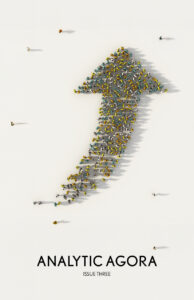
The Analytic Agora is a peer-reviewed psychoanalytic journal, published annually, which aims at promoting awareness of psychoanalysis – as a placeholder – in social bonds, with the view to setting up an open but critical space for debates between different schools of psychoanalytic thought, outside the dogmatism of regulatory bodies and partisan training organisations. Berjanet Jazani is the editor-in-chief of the journal and the editor advisory group consists of Ian Parker, Gwion Jones, Carol Owens, Stefan Marianski, Nicholas Bayley and Daniel Bristow.
- How Does Analysis Work? Examples of Lacanian Interpretation

How Does Analysis Work? uses short, compelling vignettes from people in Lacanian analysis to explore how analytic interpretation works. Insights, revelations, connections, meanings and non-meanings all feature in these anonymous accounts of crucial moments in analysis, providing a sense of what it is all about. Drawn from a wide range of analysands, some seasoned analysts and others just starting out, these vignettes show how change takes place. The short pieces are drawn from Lacanian analysis, but many go against cliched views of what Lacanians do in their work, spanning both the classical and the radically innovative and showing the use of humour and theatre in psychoanalytic practice.How Does Analysis Work? will be of great interest to psychoanalysts in practice and in training, as well as anyone who is curious about the analytic process.
- The Perfume of Soul from Freud to Lacan: A Critical Reading of Smelling, Breathing and Subjectivity
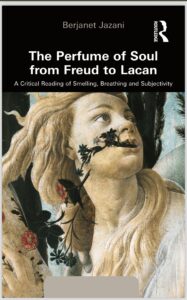
The Perfume of Soul from Freud to Lacan seeks to understand the human sense of smell and its marks on our subjectivity from a psychoanalytic perspective.Accessibly written, the book considers whether our understanding of the sense of smell and odours in culture has changed over time, and where we locate olfaction in theories of psychoanalysis. Beginning with the theorisation of the sense of smell in philosophy and medicine, Berjanet Jazani explores what treatment of this sense we can find in the historical and contemporary linguistic and cultural context. Jazani then takes examples from the psychoanalytic clinic as well as cultural references, from cinema to ancient literature, to elaborate the marks of the olfactory experiences on our subjectivity and sexuality. Lacanian theories, clinical anecdotes and autobiographical references are woven together to raise some critical questions about the law of odours as well as the invisible marks of breathing on subjective position, body, and symptom.The Perfume of Soul from Freud to Lacan will be of great interest to psychoanalysts, academics and all readers who are interested in psychoanalysis, philosophy, and culture.
- LACAN, MORTALITY, LIFE AND LANGUAGE: CLINICAL & CULTURAL EXPLORATIONS
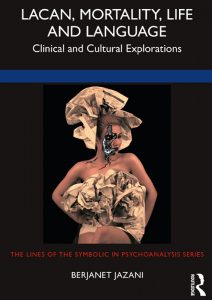
This book takes examples from the psychoanalytic clinic as well as cultural references ranging from ancient Persia to London’s Theatreland in order to elaborate the question of subjectivity, reality and truth from a psychoanalytic perspective. In the era of hyperreality, the agency of branding and marketing strategies have overshadowed the reality of a human being, his true nature and agency. The book explores the question of the reality and mortality of a subject through a Lacanian prism, from the theorising of analytical subjectivity that starts with the Freudian Oedipal myth more than a century ago to the futurist aspiration to fabricate human beings according to some ideal model.
- Lacanian Psychoanalysis from Clinic to Culture
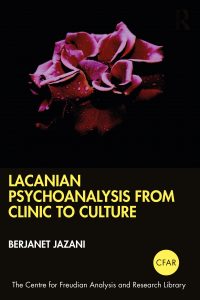
Using examples from cinema, artificial intelligence, and clinical and cultural references, the book covers major topics within the field, including dreams, the mirror phase, psychosis, hysteria, the position of the analyst, the drive, supervision and the symptom. Each is set within the context of our technologically oriented, market-based society and complemented with empirical vignettes. The book’s final section examines contemporary society and radicalization.
- Analytic Agora 2 (The Drive to Regulate)
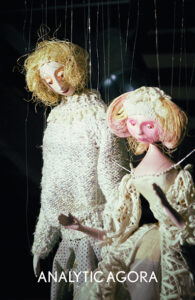
The Analytic Agora is a peer-reviewed psychoanalytic journal, published annually, which aims at promoting awareness of psychoanalysis – as a placeholder – in social bonds, with the view to setting up an open but critical space for debates between different schools of psychoanalytic thought, outside the dogmatism of regulatory bodies and partisan training organisations. Berjanet Jazani is the editor-in-chief of the journal and the editor advisory group consists of Ian Parker, Gwion Jones, Carol Owens, Stefan Marianski, Nicholas Bayley and Daniel Bristow.
- Analytic Agora 1 (Doing Analysis in Adverse Condition)
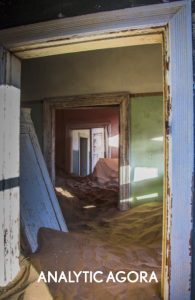
The Analytic Agora is a peer-reviewed psychoanalytic journal, published annually, which aims at promoting awareness of psychoanalysis – as a placeholder – in social bonds, with the view to setting up an open but critical space for debates between different schools of psychoanalytic thought, outside the dogmatism of regulatory bodies and partisan training organisations. Berjanet Jazani is the editor-in-chief of the journal and the editor advisory group consists of Ian Parker, Gwion Jones, Carol Owens, Stefan Marianski, Nicholas Bayley and Daniel Bristow.
- JCFAR ISSUE 31

‘Thoughts on the 2020-21 Covid-19 Pandemic: A Moment of Interruption’ is a piece that has appeared in JCFAR 31. In this paper, the effect of the pandemic on the clinic of psychoanalysis has been explored. Using clinical examples as well as a reference to the work of cinema, we have asked whether working remotely during this period has treated the narratives around pain, loss, and grief at the level of the subject of the unconscious, whose reality and subjectivity are invested in a mortal body. While 2020 was the year of ‘nobody knows’, or perhaps the year of ‘no, body knows’, we hope that psychoanalysis continued to speak to the real body which was physically absent from the consulting rooms.
- JCFAR ISSUE 29
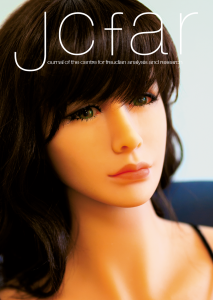
‘A Resident of the World’ is a piece that appeared in JCFAR 29. In this paper, the question of “history” is approached from two different perspectives: the history as every individual’s description of life and the subjective history as the history of the speaking being (parlêtre) (Lacan, 1975). The former concerns any individual(s) in singular or collective form, while the latter focuses on the particularity of each subject’s self-created history. How certain life events can mark a subjective interpretation, leading to/not to a symptom formation.